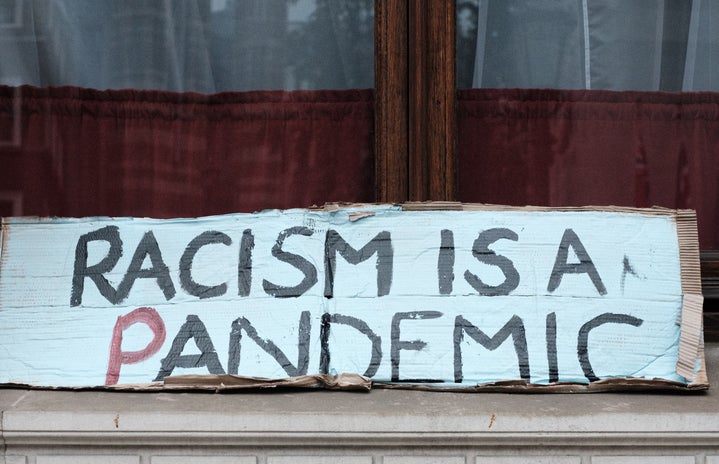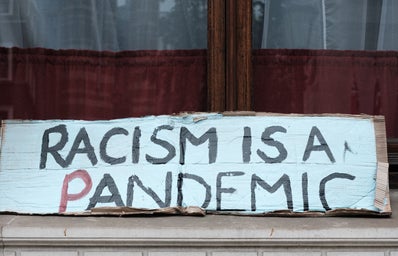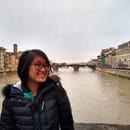Like so many, I’m reeling from the series of mass shootings that occurred on March 16, 2021. Eight people were murdered. Six were women of Asian descent. And yet, a terrible, tragic, completely preventable massacre isn’t enough to finally identify these planned attacks against the Asian community as hate crimes.
Before COVID-19 reached our shores, disgusting rhetoric fueled by our former president and unrelated pictures of Asians being used on every coronavirus media report created a narrative and an environment in which there was a clear, visible enemy. No, not the actual virus that was making millions of people sick, but an entire race of people. An entire race of people was to blame because this disease’s place of origin was one province in one Asian country.
Stop AAPI Hate noted 3,795 racially motivated incidents over the course of this pandemic—and that’s only accounting for the cases that are actually reported. On February 1, 2020, exactly a month before students would be forced out of college campuses across the nation, I was in a sandwich shop with an Asian friend. It was a tight grab-and-go place with tables and stools up against the walls. As I waited for my order, two older women were sitting and drinking coffee to my right. They were throwing dirty glances at me over their shoulders and couldn’t be more obvious about it. I did my best to pay them no mind until I heard their comments.
“Our immune systems can’t handle the coronavirus!”… “Can you believe Chinese people are eating bats? Bat droppings too…”
Racism against Asians is nothing new; it merely takes on different forms. To these women, all Asians were the “yellow peril” coming from China. Somehow we were genetic carriers of this respiratory disease that non-Asians couldn’t handle. This virus was a direct result of our cultural cuisine, not dangerous wildlife wet markets.
Let’s get one thing straight: Bat soup is in no way a common Chinese or Asian dish and perceiving our foods as inherently dirty and weird is xenophobic.
Other times we’re the “model minority,” hailed as a universal immigrant success story, a perfect manifestation of the American Dream. This title wasn’t created to celebrate us; it was created to completely dismiss systemic racism against Black, Indigenous, and Hispanic communities and the concept of white privilege. To make this myth even more maddening is the fact that this isn’t even true. We aren’t all Crazy Rich Asians. House of Ho and Bling Empire aren’t our shared reality. There are significant gaps in income among the Asian American community based on a variety of factors including location and demographics. This income disparity has rapidly widened over the years and will likely continue as Asians in the top 10% make 10.7 times more than Asians in the bottom 10%. The poverty rate of Asian American seniors, especially those that are living alone, is much higher compared to the general elderly population’s. They are among the most vulnerable and are far more at risk of being victims of violent, unprovoked attacks.
Whether we’re a group to be feared or seemingly revered, one thing at least stays the same. We still suffer from “perpetual foreigner syndrome.” Our race and ethnicities are somehow in direct opposition to our national identity as Americans. It doesn’t matter if you were born or raised here. It doesn’t matter if English was your first language. What matters is how you look and Asians don’t look like Americans. According to Andrew Yang, our “American-ness” is something that needs to be proven. Apparently wearing red, white, and blue and stepping up to help our fellow non-Asian Americans are how we can ensure we won’t be subject to verbal and physical abuse. We must sacrifice our culture in order to receive basic human respect. This logical fallacy resembles the sentiments toward Muslim Americans in the wake of 9/11. In this country, minorities have to bear the responsibility of mitigating racist people’s discomfort and concerns—only for those same racists to then have the audacity to question our patriotism.
To assume we don’t truly belong here erases centuries worth of Asian American history: a history of colonization, back-breaking labor, exclusion, propaganda, internment, and violence that is barely taught in schools. It erases our families’ struggles, many of whom came here as refugees from war-torn countries. All these labels (“yellow peril,” “model minority,” “perpetual foreigner”) only serve to discredit our unique experiences and lump us together into one sweeping monolith, a story we never wrote but a story we can never escape.
Still, it would be disingenuous of me to not acknowledge that some Asian Americans happily embrace the model minority myth. Whatever provisional sense of superiority they enjoy from buying into the insidious lie that we, as Asians, are more deserving of success will just cause more harm for Asian Americans who aren’t as light-skinned or financially privileged. Wanting to assimilate and actively hurting other minorities of color are two different things. The latter should never be considered a legitimate way of getting ahead.
Anti-Blackness in Asian communities is a problem and it’s not going to magically disappear overnight. There’s also clear racism within the Asian American community itself and scapegoating one particular group will do absolutely nothing when non-Asians can’t, for the love of God, tell any of us apart.
Every form of injustice and discrimination is wrong. Support for various human rights issues isn’t transactional or conditional on anything. Do what you can to educate yourself and help those in need simply because it’s the right thing to do and it’s a cause you believe in. I don’t need anyone to pressure a specific person or group to post a mere hashtag, pat themselves on the back, and call it a day. There’s so much work to be done and it will be an incredibly long and challenging process. Arguing over who has it worse is futile and doesn’t allow for any nuance. As Cathy Park Hong, Korean American author of Minor Feelings, writes, “Racial trauma is not a competitive sport.”
We as Asian Americans can’t afford to mind our own business nor downplay the racism we face. We shouldn’t be held accountable for the actions of the Chinese Communist Party and neither should its people. Increased policing won’t solve our problems when the police have no interest in humanizing marginalized individuals. Instead, look into empowering the local work of Asian grassroots organizations and getting involved yourself. Donate to those affected by the drastic spike in hate crimes. (GoFundMe fundraisers for the victims of the Atlanta spa shootings can be found here.) I’m sick and tired of hearing that the Atlanta shooter was having a “really bad day.” For Asians and Asian Americans alike, it’s been a never-ending traumatizing year.


